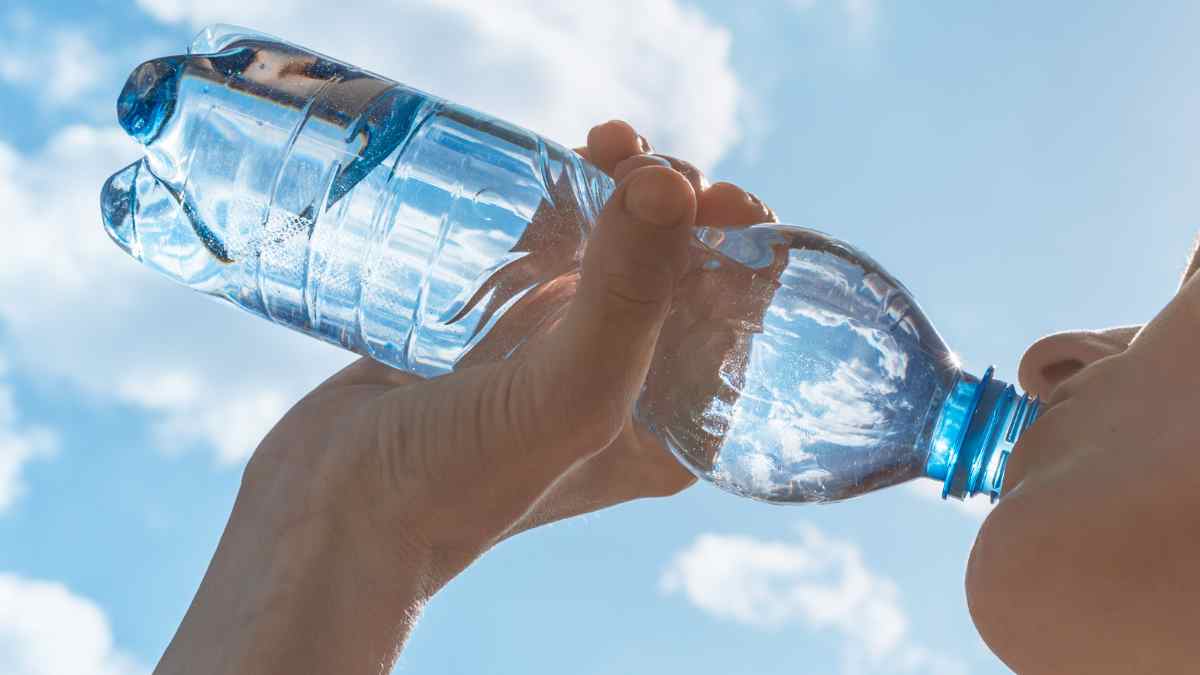Tips on drinking water appropriately to take care of your kidneys and prevent kidney failure
It is very important to protect your kidneys every day. Drinking water properly will help the kidneys function more effectively in filtering out harmful substances.
From the morning, you should maintain adequate water intake and avoid dehydration of the kidneys.
How to drink water reasonably to protect the kidneys
You can follow these tips to effectively care for your kidneys:
Drink enough water every day, not too little. On average, each person should drink about 2 liters of water per day. However, this number can vary depending on many factors such as: age, gender, fitness... If you participate in physical activities or live in hot and humid weather conditions, remember to supplement water.
Monitor your urine color, if your urine is pale or light yellow, it shows that you are hydrating your body. However, if it turns dark yellow, you need to add more water.

Avoid consuming too much water at one time, instead, drink it in small sips throughout the day. Limit drinking too much water at once as this can reduce sodium levels in the blood, leading to the kidneys and heart having to work harder.
Start your day with a glass of water
Drinking one to two glasses of water right after waking up will help you feel alert, support the digestive system and keep the kidneys functioning stably. Not only water, but also a top priority in water filtration.
Water is an ideal choice: sugar-free, calorie-free and also has no additives. Water helps the kidneys eliminate toxins and prevent kidney stones.
In addition, you can add herbal tea or water with natural flavors such as lemon or cucumber to increase the attractiveness of drinking. Increase water intake through food
Watermelon, cucumber, lettuce and squash are good choices to help the body maintain enough moisture without overloading the kidneys.
How to drink water appropriately to maintain kidney health and prevent kidney failure
When the body is not provided with enough water, urine will thicken, easily facilitating the formation of kidney stones and harming kidney functions.
In addition, electrolyte imbalance can cause the kidneys to overwork, leading to acute kidney failure.
Nutritionists recommend drinking water appropriately to help the kidneys function effectively, avoiding lack or excess water.
Nutritionists say that each person's water needs may vary depending on each individual and specific circumstances.
Some points to note
If you have end-stage kidney disease or are being treated with a dialysis machine, water supplementation should follow your doctor's instructions. Drinking too much water can lead to edema, high blood pressure and put pressure on the heart.
Many people often think that the more water they drink, the better it is. In fact, the amount of water you need can vary depending on the location and health condition. Adjust accordingly.
Some helpful tips when drinking water include: drink regularly, should not be hydrated and should not drink too much, and start a new day by taking in water. These habits will help protect the kidneys and prevent kidney failure. Being proactive will help you maintain kidney function most effectively.








